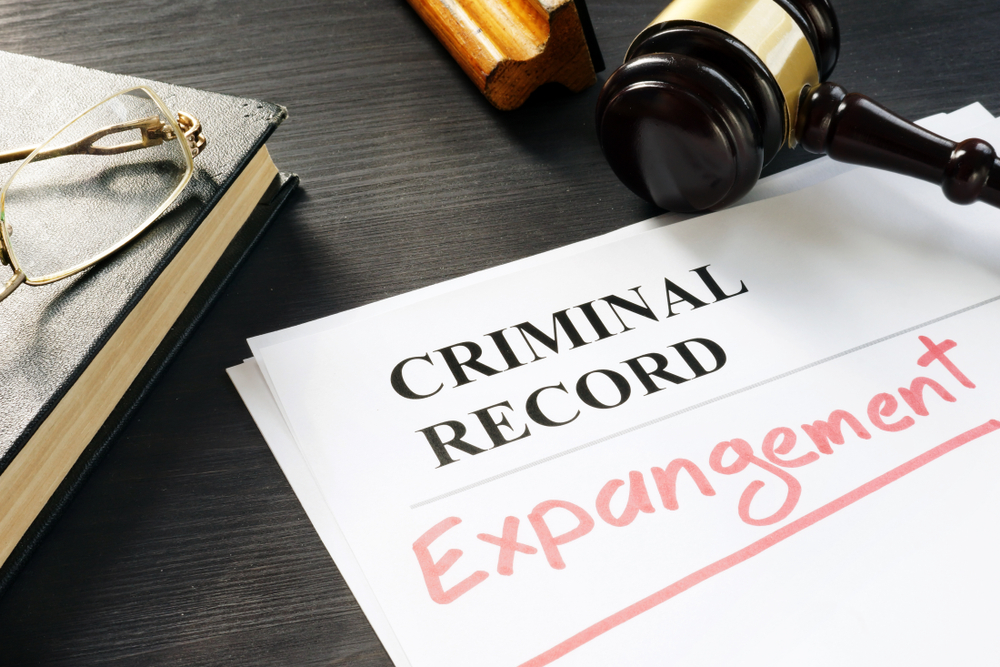What is Expungement and Do I Have a Case?
 If you have a criminal record or conviction that regularly sticks out in your daily life and are looking for ways to leave it in your past, an expungement order is what you need. Simply put, expungement refers to the process in which an individual’s criminal record is sealed from the state, federal, and public records. Unlike pardons granted by public officials such as the president or state governors, an expungement can only be ordered by a judge or court. Below, we discuss what expungement is all about and how State College expungement law firms can help.
If you have a criminal record or conviction that regularly sticks out in your daily life and are looking for ways to leave it in your past, an expungement order is what you need. Simply put, expungement refers to the process in which an individual’s criminal record is sealed from the state, federal, and public records. Unlike pardons granted by public officials such as the president or state governors, an expungement can only be ordered by a judge or court. Below, we discuss what expungement is all about and how State College expungement law firms can help.
What is Expungement?
As previously stated, expungement erases any criminal conviction record, treating the conviction as if it never occurred. Most proceedings will often be ordered in state courts, with those from federal courts being rare due to the lack of federal statutes regarding their application. Each state uses specific laws to determine eligibility, the procedures for application, and examples of offenses that can be expunged, allowing each region to have a proper expungement framework. Juvenile records are some of the most common points of concern that qualify for an expungement, with State College law firms also helping adult defendants navigate restrictions issued by various state limits.
An example of offenses that are not eligible for expungement includes driving offenses in specific states, with others such as kidnapping and murder also having their restrictions. Depending on the state laws, your State College lawyer will prove essential in helping you get either a sealed or destroyed expungement order. Sealed records are often available to law enforcement officers but will be removed from public viewing. Destroyed records will, on the other hand, be removed from the state court system after the expungement order is issued.
While the courts can remove criminal records from specific courts, they will often have their limits in the outside world. These include documents that are in social media outlets, the press, or Google. This means that if the specific matter in question and additional documentation exists outside the court’s jurisdiction, the court cannot control information in public records.
A brief look at some of the information you can expect from a PA expungement order includes identification of the case in question, the matter to be expunged from court records, and the parties involved. A State College expungement lawyer also stated that orders include a list of agencies that receive a copy of the order. The agencies receive instructions on whether to expunge and destroy the official and unofficial arrest and other documents related to the criminal proceedings. The order also includes a date and the state seal, identifying the filing with the court. Lastly, the judge will sign the order, after which the person signing also certifies that the records have been expunged and destroyed as instructed.
Contrary to popular opinion, an order also does not seek to privatize criminal activity. This means that while the order removes a conviction or a particular arrest from one’s criminal record, the underlying matter for the expungement remains public. In addition to this, police blotters and court records will still retain permanent documentation of the expunged case. Any officials aware of the incident will also have information about the issue at hand.
How an Attorney Can Help
Having a criminal record can mean putting your life on hold through numerous phases of your daily routines, an aspect that could significantly hinder your progress. Navigating an order by yourself will also not be easy, with the solution being utilizing the services of Pennsylvania expungement lawyers. From helping you decipher the proper state legal procedures to helping you break down the endless legal jargon, PA expungement experts will be your best fit in helping you take charge of your privacy concerns. For help with your expungement order needs or more information on how we can help, consider giving Engle Kauffman & VanHorn a call today.



